At the confluence of the River Boyne and Blackwater lies Navan - a town whose name reads the same forwards and backwards, much like its timeless balance between ancient history and vibrant modernity. Nestled in County Meath's heartland, it's a place where every cobblestone whispers stories of Ireland's past. Just beyond its bustling streets rises the Hill of Tara, a 5,000-year-old spiritual and political powerhouse that crowned Ireland's High Kings beneath its iconic Lia Fáil Stone. Wander through Athlumney Castle's shadow or trace Navan's medieval walls on the Points of Pride Walking Trail, where history feels as alive as the thriving arts scene at Solstice Arts Centre. This is a town where the past isn't displayed - it breathes.
For adventurers, pedal-powered go-karts zip across Navan Adventure Centre's tracks, while riverside walks along the Boyne lead to 12th-century Bective Abbey or Donaghmore's towering medieval spire. Nearby, Newgrange's solstice-aligned tomb and Slane Castle's concert-ready grandeur offer sweeping vistas of the Boyne Valley. Yet Navan itself is no mere gateway - it's a destination where cozy cafés serve barmbrack beside bustling markets, and local artists exhibit in galleries once echoing with monastic chants. Whether you're tracing 3,000 years of heritage or savoring the purple-award-winning energy of its nightspots, Navan offers a journey backward and forward at once.
Jump to section:
Things to See and Do
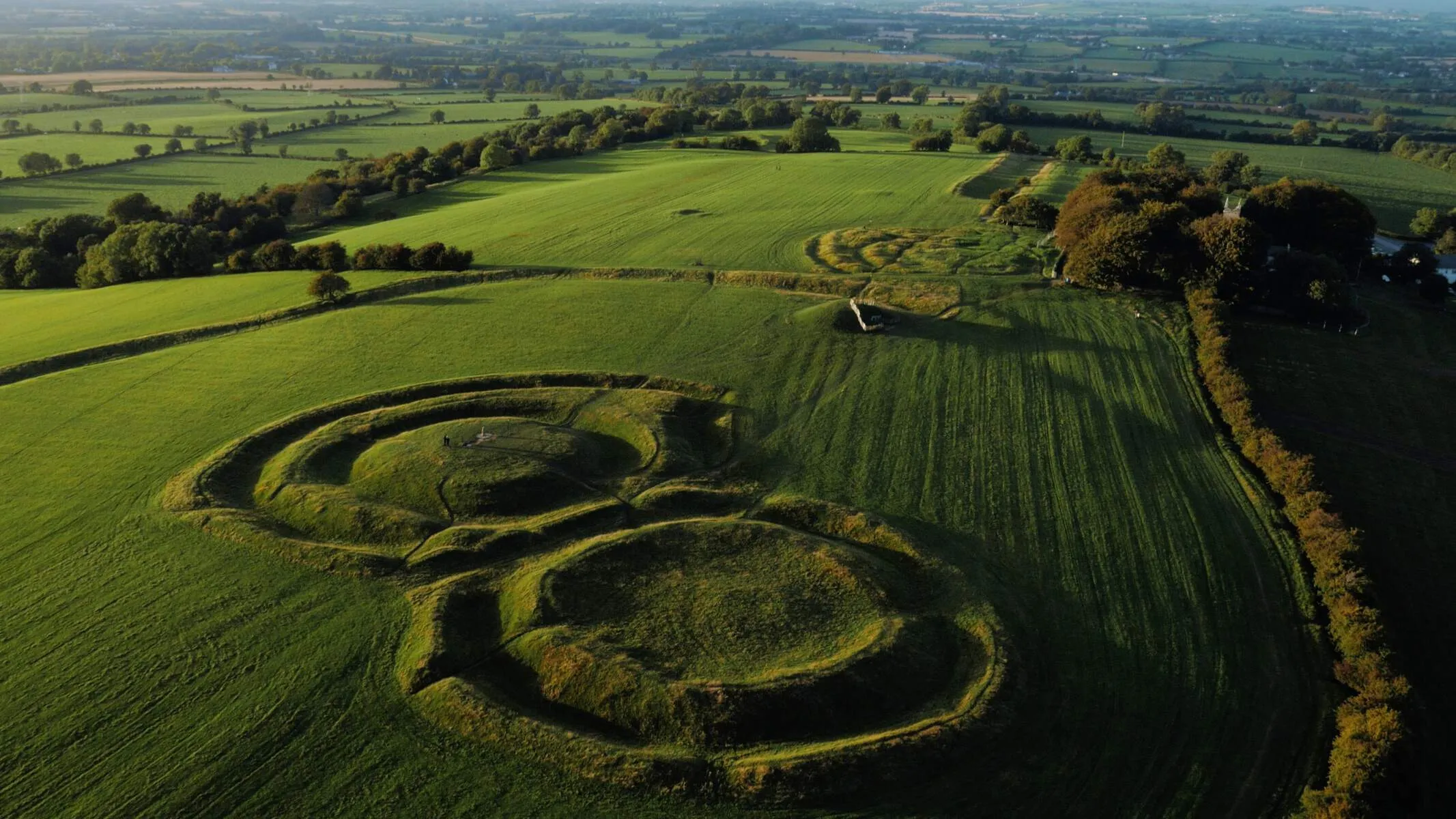
Hill of Tara
Archaeological complex dating to 3000 BC with the Stone of Destiny (Lia Fáil), ancient seat of Ireland's High Kings. Offers guided tours from the visitor center and panoramic views over County Meath.
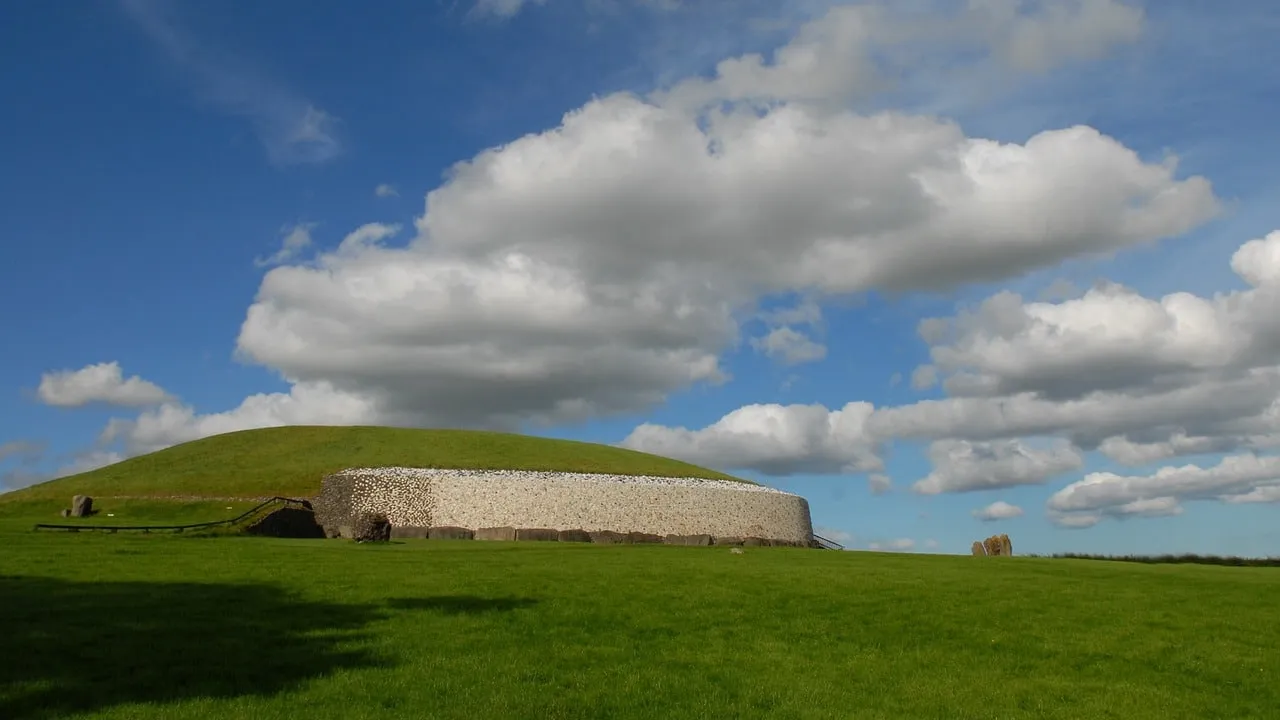
Newgrange
5,200-year-old UNESCO-listed passage tomb in Brú na Bóinne complex. Famous for winter solstice alignment; tours start from the visitor center.
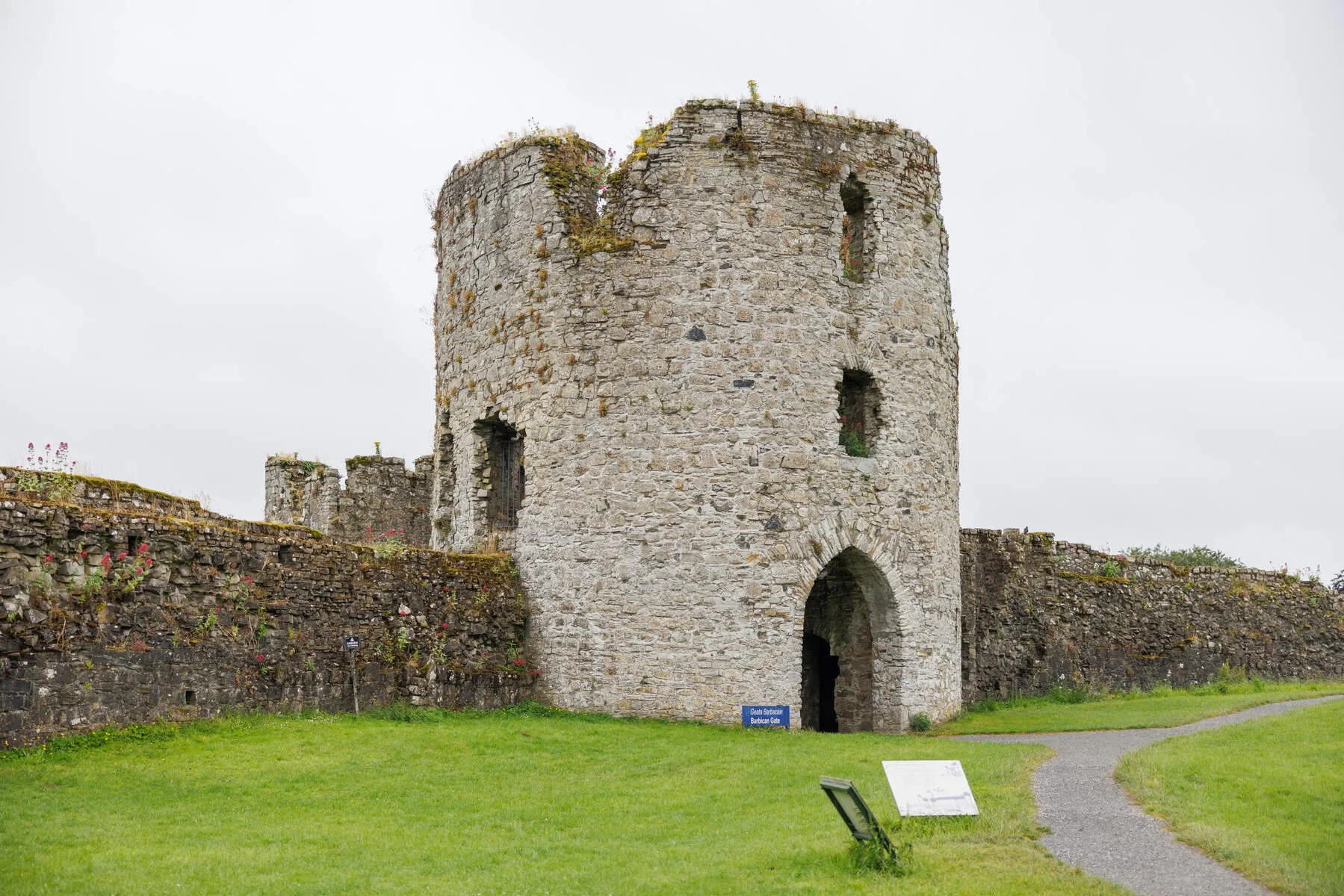
Trim Castle
Ireland's largest Norman castle built in 1220 with a 20-corner keep. Located 15km from Navan; admission fees apply.
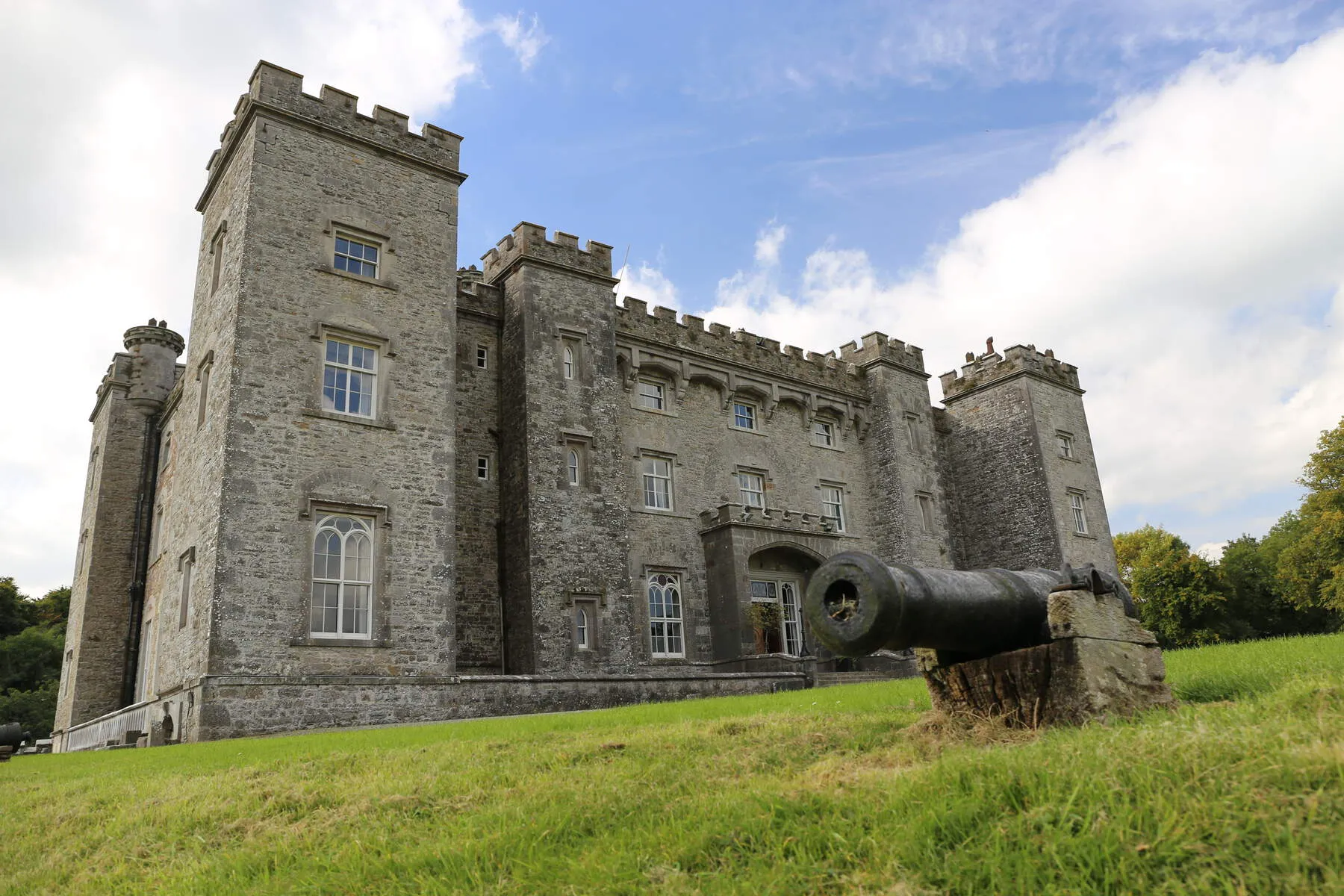
Slane Castle & Distillery
Historic 18th-century castle hosting global concerts and a whiskey distillery with guided tours. Seasonal glamping options available.
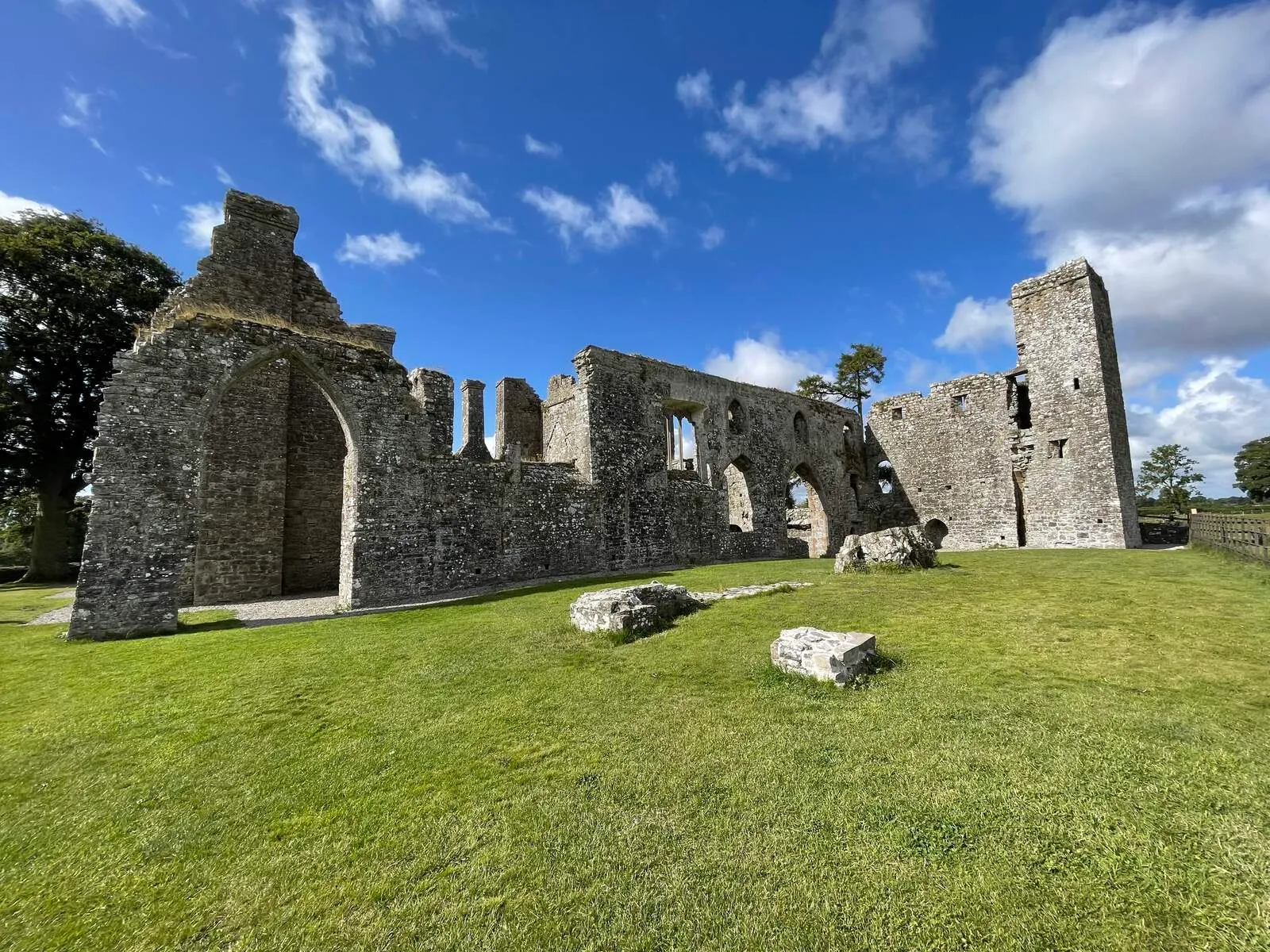
Bective Abbey
Well-preserved 12th-century Cistercian abbey overlooking the River Boyne, used in Braveheart filming. Free entry year-round.
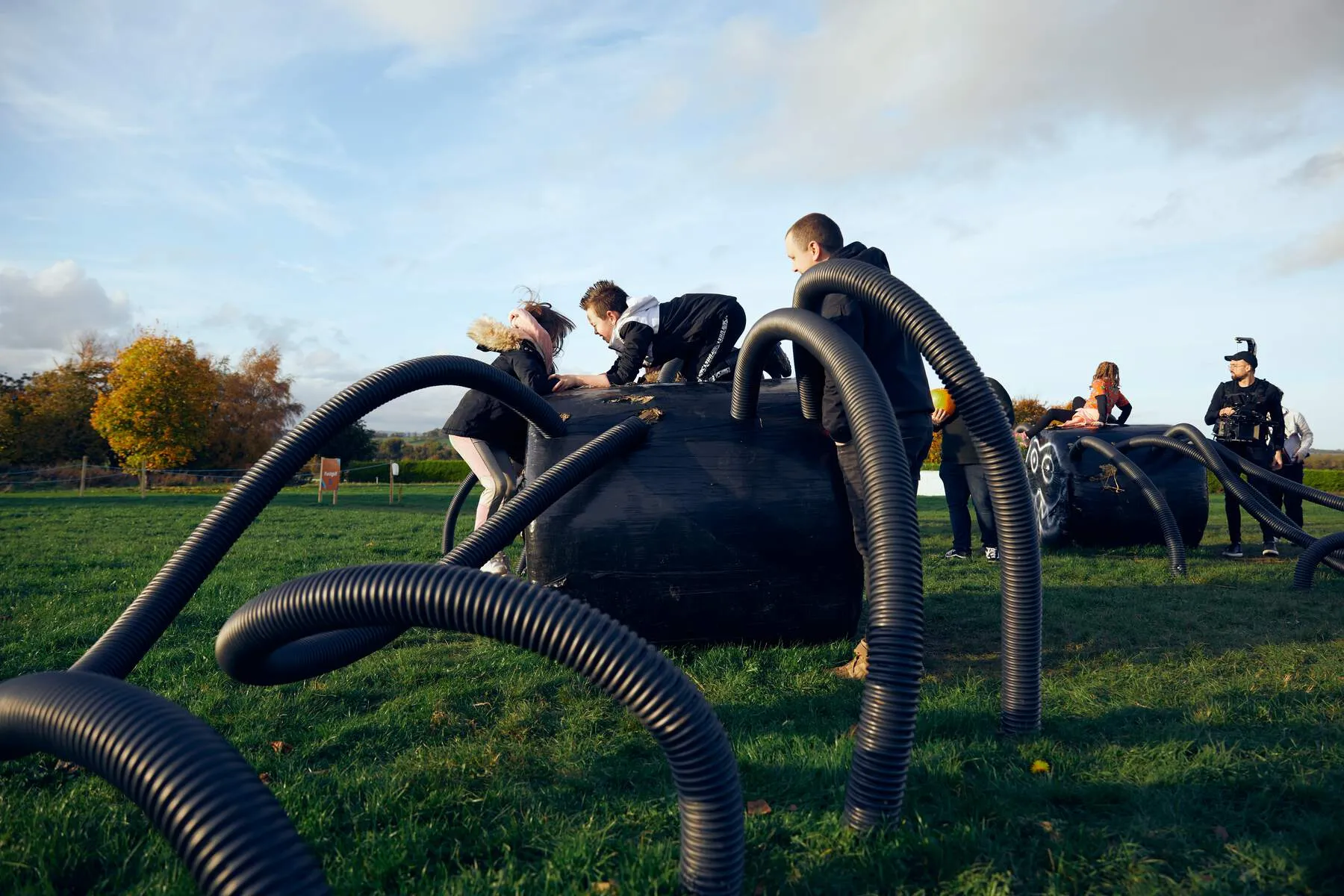
Navan Adventure Centre
Family-friendly activities including pedal go-karting, archery, science workshops, and obstacle courses with multi-activity packages.
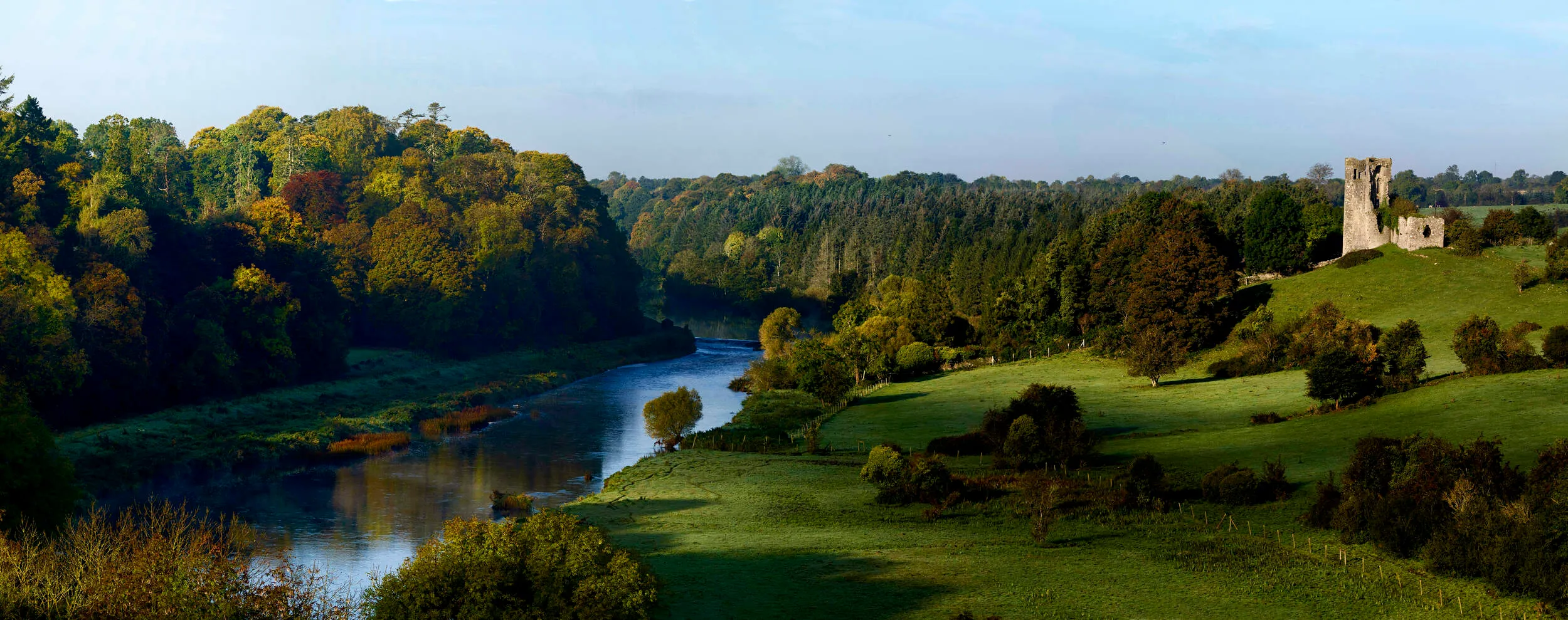
Dunmoe Castle
15th-century fortress on the River Boyne reduced to turrets after a fire. Offers scenic historical walks along the river.
Donaghmore Round Tower
10th-century round tower (85ft) on St. Patrick's monastic site with carvings and medieval graveyard nearby.
Solstice Arts Centre
Navan's cultural hub offering exhibitions, theater performances, and the start of the Points of Pride Walking Trail. Features a café with homemade dishes.
Points of Pride Walking Trail
4km self-guided tour from Solstice Arts Centre exploring Navan's history, including Athlumney Castle and The Ramparts along the Boyne River.
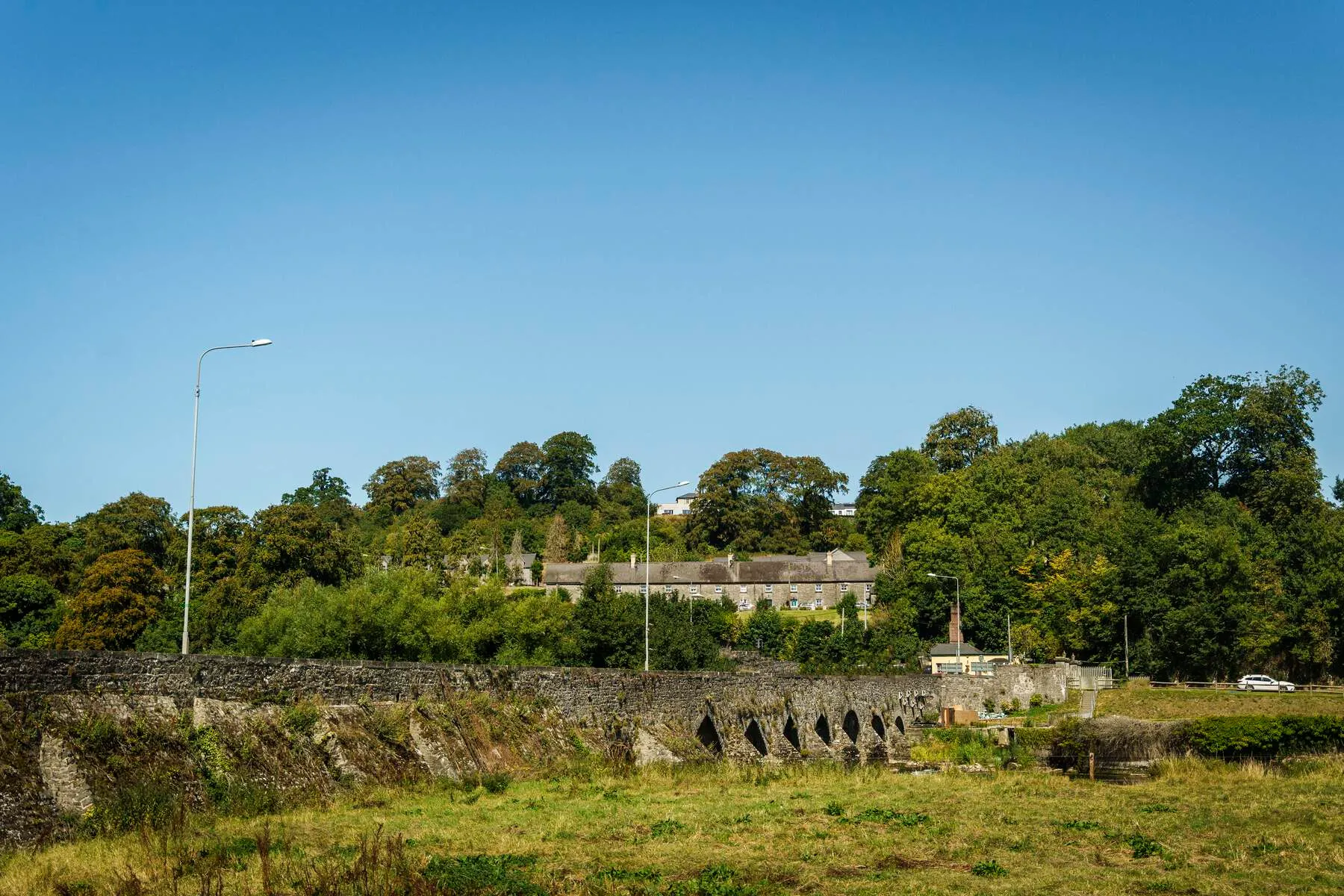
Ramparts Canal & River Boyne Walk
8km riverside walkway from Stackallen to Navan passing Babe's Bridge, Dunmoe Castle, and Ardmulchan Church with scenic towpaths.
Causey Farm
Interactive farm experience with tractor rides, bog wading, baking bread, and Irish dance lessons offering insights into rural life.
St. Mary's Catholic Church
Gothic Revival church modeled after a Parisian opera house showcasing architectural grandeur in Navan's town center.
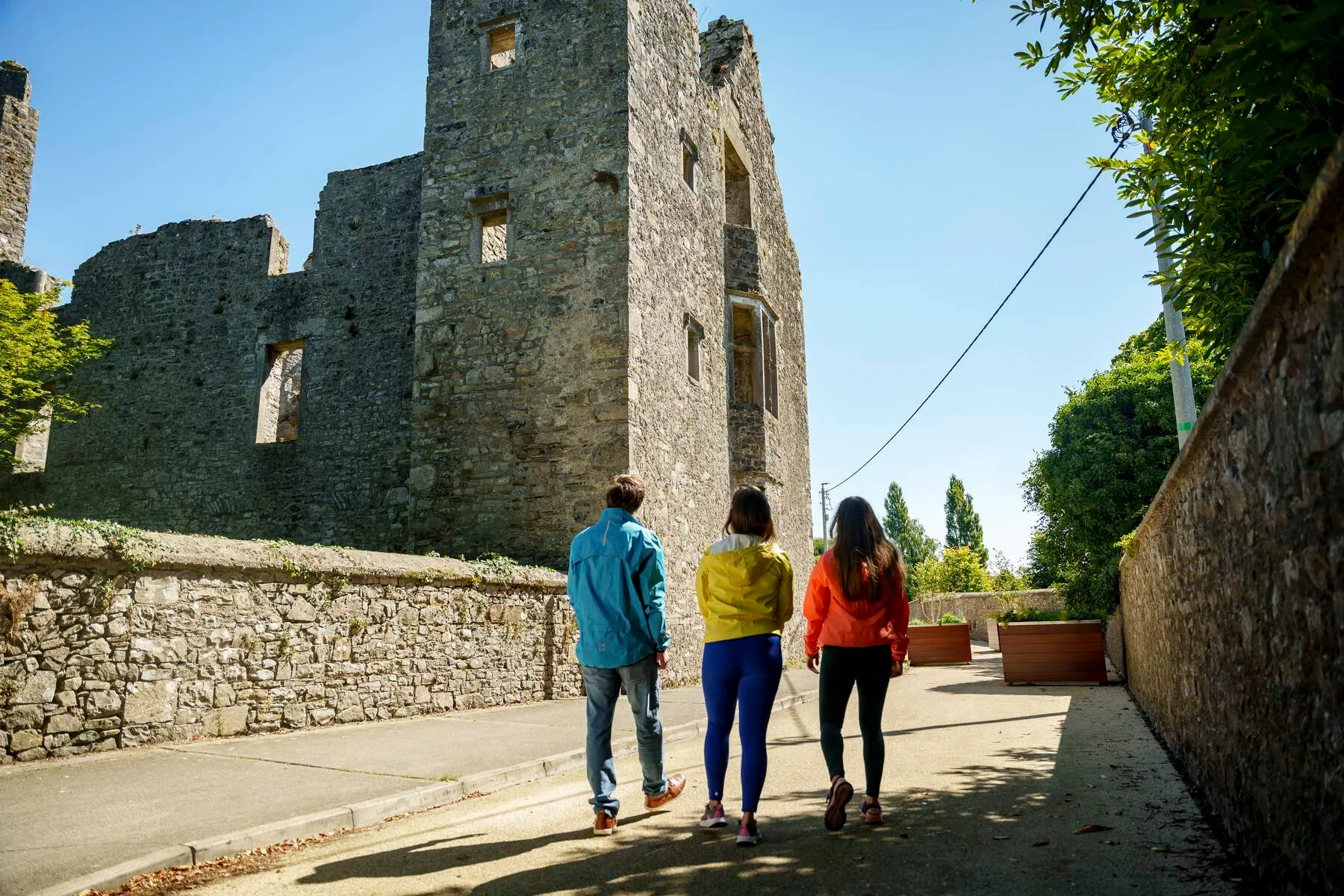
Athlumney Castle
15th-century tower house with Tudor additions near Navan's town center, accessible via Athlumney Manor B&B with historical significance from Cromwellian times.
River Boyne Fishing
Iconic river offering trout and salmon fishing. Day permits required; guided tours available through local angling associations.
Getting There
Bus
Navan is served by several bus routes, including:
-
109: Runs to Dublin
-
109A: Runs to Dublin Airport
-
109X: Runs to Cavan Institute and Dublin
-
NX: A commercial express service to Navan operated by Bus Éireann
-
N1: A town bus route that runs from Commons Road to Kilcarn Bridge, serving the town centre and areas of the town east of the Boyne River
-
N2: A town bus route that runs from Commons Road to Aisling Place, serving the town centre and areas north of the Boyne and Blackwater Rivers
-
Other routes operated by Sillan, Royal Breffni Tours, and Streamline Coaches
Bus stops near County Meath station in Navan:
-
Kennedy Road, 2 min walk
-
Abbey Road, 2 min walk
-
Navan Market Square, 4 min walk
-
Beaufort Road, 5 min walk
Car
Navan is located near the M3 motorway, which connects Dublin to Cavan. You can take the M3 from Dublin and exit at Junction 8 for Navan. Approximate travel time from Dublin: 36 minutes via the M3 Approximate travel time from Dublin Airport: 42 minutes via the M3 and M50
Train
The nearest train station is in Drogheda, which is about 30 minutes from Navan by car or taxi. You can take a train from Dublin's Connolly Station to Drogheda and then transfer to a bus or taxi to get to Navan.
Note: There is no direct train line mentioned to Navan in the provided text.
Events & Festivals 2025
There are currently no events listed. If you would like to add an event, please contact us.
History
Navan's history stretches back to prehistoric times, with evidence of human settlement in the area dating back to the Mesolithic era. The town is situated near the Hill of Tara, the traditional seat of the high kings of Ireland. According to legend, Fionn mac Cumhaill, a figure from Irish mythology, studied under the druid Finegas along the River Boyne and caught the Salmon of Knowledge in what is now Navan.
In the 12th century, Hugh de Lacy, who was granted the Lordship of Meath, awarded the Barony of Navan to one of his knights, Jocelyn de Angulo. De Angulo built a fort in the area, which eventually developed into the town of Navan. The town was walled and fortified by the Normans, with three main streets: Trimgate Street, Watergate Street, and Ludlow Street.
During the medieval period, Navan was an important outpost of the English Pale, a territory under direct rule from Dublin. The town's strategic location at the confluence of the Rivers Boyne and Blackwater made it a key stronghold for the English. In 1649, Athlumney Castle, which faces Navan across the River Boyne, was burned by the Maguire's rather than allow Oliver Cromwell to take shelter within its walls.
The town has a rich cultural heritage, with many notable figures hailing from Navan, including Sir Francis Beaufort, who developed the Beaufort Scale of wind force, and Pierce Brosnan, the actor who played James Bond. Navan is also home to several historical sites, including the Navan Fort, a prehistoric fort that dates back to the Iron Age, and the Navan Castle, a 15th-century castle that now serves as a museum.